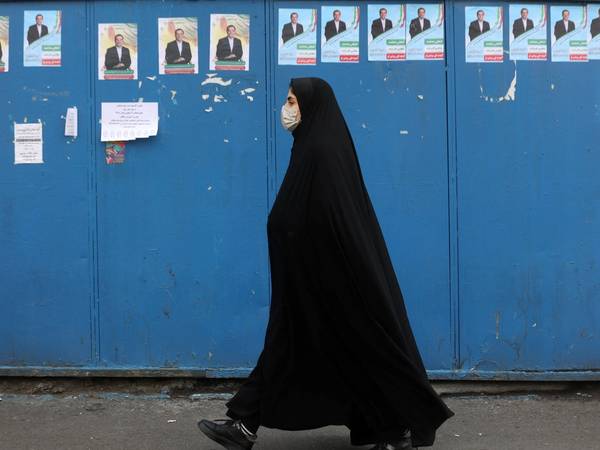The March 1 parliamentary election in Iran has effectively ended as two leading ultraconservative groups reached an agreement to share the list of 30 candidates for Tehran.
The hardliner Paydari party, currently the strongest in parliament (Majles) and the Speaker Mohammad Bagher Ghalibaf concluded the deal on Sunday, after most Reformists and moderates were banned from running in the elections.
This agreement signifies that the current composition of the Majles will persist for another four years regardless of the exact election outcome. Media reports revealed that Ghalibaf, leader of the Paydari party Sadeq Mahsuli, Tehran's Mayor Alireza Zakani, and former Majles Speaker Gholam-Ali Haddad Adel were involved in the deal, effectively ending over a year of factional infighting among Iran's conservatives.
The presence of Haddad Adel, an insider in Ali Khamenei's inner circle and his relative, also suggests that probably the Supreme Leader intervened at the last moment to save another relative, Ghalibaf remain a leader in the Majles. Nonetheless, other reports also said that Ghalibaf has bribed Paydari to keep his position.
According to Khabar Online, the outcome of the deal was predictable. Mahsouli had previously stated that any agreement with Ghalibaf would result in the shared list for Tehran having two leaders: Ghalibaf and Morteza Agha Tehrani, the former secretary-general of Paydari. This arrangement materialized immediately after the agreement was reached on Sunday evening. However, the hardliner Paydari is known for breaking deals in the last moment and Ghalibaf should keep his fingers crossed.
Ghalibaf is known as a politician with few allies who have not significantly impacted his status in the Majles. His final list includes his close aide Saeed Ahadian and a few others. Paydari, on the other hand, is described as a pragmatic ultraconservative political group that eliminates its rivals through smear campaigns and focuses on its political interests and gaining influence rather than religious or ideological matters. Entekhab news website in Tehran commented that Paydari “uses religious principles merely as a tool to gain political power. It is pragmatic in its approach and willing to use any means to achieve its goals."
Many Iranians on social media expressed disappointment with this development, as it signifies the continuation of the undesirable status quo and portends a similar scenario in the 2025 presidential elections. They fear that it will ensure the consolidation of ultraconservative government control for several more years.
In addition to the agreed-upon list, there are other lists of candidates for Tehran, each led by a prominent figure. One of these lists is being portrayed by the government as the reformist list, with former lawmaker Ali Motahari as its leading figure. However, Motahari is considered a moderate conservative with hardline views on sensitive issues such as hijab and executions.
The government welcomes Motahari's presence as a critic among the super-revolutionaries at the Majles if he can ever convince voters to vote for him. Meanwhile, by portraying him as a reformer, the government hopes to lure ill-informed reformists to the polls in the absence of real reformist candidates.
Another list is presented by populist propagandist Ali Akbar Raefipour, featuring Saeed Mohammad as its prominent figure, a former high-ranking IRGC officer. The third list is led by former Foreign Minister Manouchehr Mottaki, with Laleh Eftekhari, a lesser-known former MP, accompanying him.
The real competition seems to be unfolding in Iranian cities, where candidates are going to great lengths to campaign. Tactics include offering free food, hosting concerts, organizing shows to discredit rivals, and enlisting eulogists to chant slogans in their favor.
One candidate even brought out a likeness of the hidden Shiite Imam to campaign, while another delivered a speech in English to showcase skills.
Clerics have been distributing campaign posters featuring them in clerical robes for downtown Tehran and in suits for affluent areas like Shemiran. With such varied approaches, ultraconservative voters have a wide array of choices in this election.
